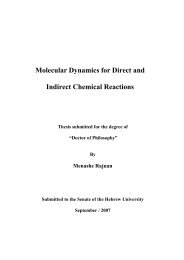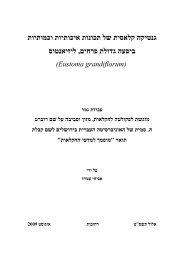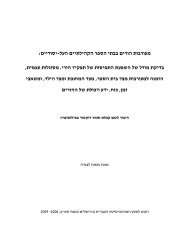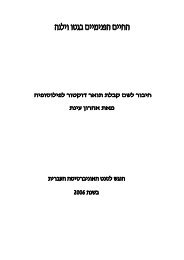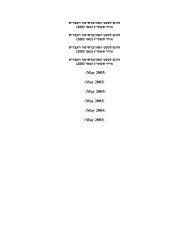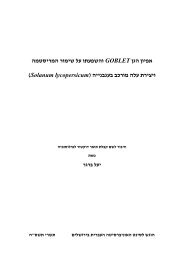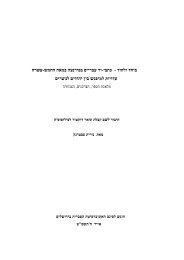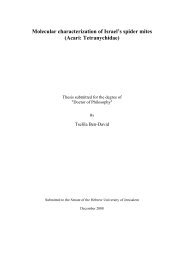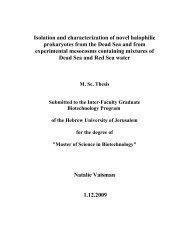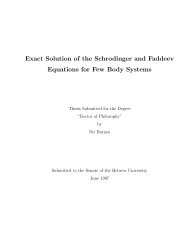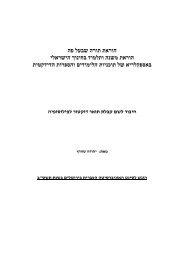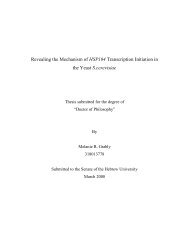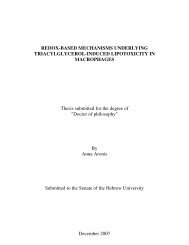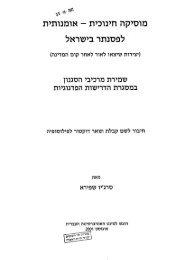××ר×ת ס×פ×ר ×× ×¡ ××קר×× ×××× ×× ××××××ª× ××שר×× - ×××× ××רס××× ××¢×ר×ת ...
××ר×ת ס×פ×ר ×× ×¡ ××קר×× ×××× ×× ××××××ª× ××שר×× - ×××× ××רס××× ××¢×ר×ת ...
××ר×ת ס×פ×ר ×× ×¡ ××קר×× ×××× ×× ××××××ª× ××שר×× - ×××× ××רס××× ××¢×ר×ת ...
You also want an ePaper? Increase the reach of your titles
YUMPU automatically turns print PDFs into web optimized ePapers that Google loves.
order for him to hear the "spokenness" of the text, and enter into his own dialogue<br />
with it. This enables him to intuit the experience himself, as it were to relive it, but on<br />
his own terms, such that he may re-experience it in different ways on different<br />
occasions. Nevertheless, the reader according to Buber must subject himself to the<br />
patterns, allusions, and contents of the text, and should not read into it what is not<br />
there. This approach resolves the difficulty that the modern reader has in believing<br />
miracle stories, inasmuch as no supernatural event is assumed to have taken place. At<br />
the same time, however, the religious significance of the "miraculous" event is<br />
preserved, indeed focused and enhanced, for both the original participant and the<br />
modern reader.<br />
When Buber`s approach is presented by subject matter experts to representatives<br />
of the teachers and of the traditional milieu, it is likely to encounter resistance: does<br />
Buber deny the actual occurrence of the splitting of the Red Sea, or of the ten<br />
plagues? And if so, is he not negating the belief in an omnipotent God? Can the<br />
Orthodox world accept into its midst – and school system – an unorthodox thinker?<br />
We address these misgivings by noting the numerous references to Buber`s<br />
biblical readings cited in the writings of the respected Orthodox author and biblical<br />
scholar, Nechama Leibowitz. Indeed, despite serious differences between the religious<br />
points of departure of Buber and of Orthodox readers, there are significant points of<br />
contact between their approaches. Buber held the Bible in great esteem and awe, and<br />
he believed in the eternity of the covenant between God and Israel, and in the<br />
relevance of the Bible to modern man. Hence, Orthodox readers such as Nechama<br />
Leibowitz are likely to find much of Buber's biblical interpretation both congenial and<br />
instructive. Nevertheless, even if Orthodox teachers and educational leaders are<br />
320



